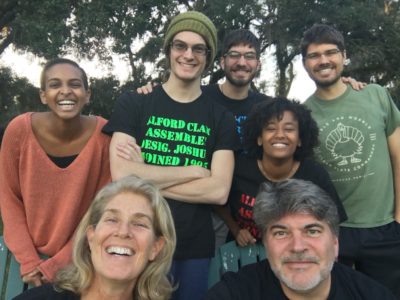The poorly coordinated clan of seven pictured here is my chaotic family. As you can see, I am adopted. My parents had three biological sons before deciding to adopt my sister, Bayush, and I from Ethiopia in 2000. I was always aware that I was not their genetic daughter. I knew what box to check.
But I had no peace of mind despite certainty in how strangers saw me.
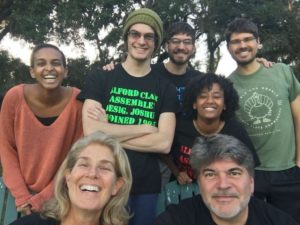
Until 6th grade, I kept my natural, kinky curly hair and roamed Inverness, Florida with a cloud on my head. In middle school, I chemically straightened my hair, ignoring long term damage, so I’d look like the girls in my class. In high school, I grew natural dreadlocks as a last-ditch effort to understand the roots of black culture. I posted, retweeted and hash-tagged the black lives matter movement, and yet I still felt unfulfilled. I sprouted opinions on police brutality and marginalization of black communities because if I didn’t, I was letting my people down. But when I expressed concern for my safety by speaking out after yet another unarmed black man was shot and killed, I was ‘playing a black card’ or ‘being too damn loud.’
I struggled to find the grey area in which I was allowed to exist.
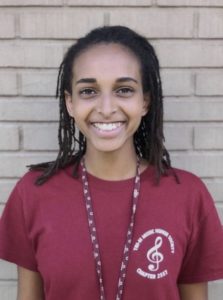
By my senior year, I became more politically aware as I was exposed to a world outside of the predominantly white bubble in which I was raised. I was told I “wasn’t really black” by my gangly, white, basketball shorts-wearing, knobby-kneed friend who still doesn’t understand how much it hurt. I felt fated to surround myself with kids who looked like me but was never accepted by them. My every move was a choice between black or white. I couldn’t be both because there’s already a word for that, and I’m not mixed, so that left me with neither. My uncle said, “Your mother did a great job of raising two intelligent, talented young women. But she did not raise two Ethiopian daughters.”
I feuded with my freshman year biology teacher who never learned how to say my name. I went to Jesus every summer and came home scarily good at line dancing. I started a record collection (Phil Collins, Barbra Streisand, Tchaikovsky, and Sza, to name a few). I chiseled my heart from Chance the Rapper and Childish Gambino albums, from binging seasons of SVU, and from the community of teachers, pastors, and mentors who encouraged my growth and questioning. After graduating, I traveled with my family to Zimbabwe, Zambia, and Ethiopia to explore my great-grandfather’s history as a preacher and bishop in Rhodesia.
Even in what should’ve been my homeland, I felt out of place.
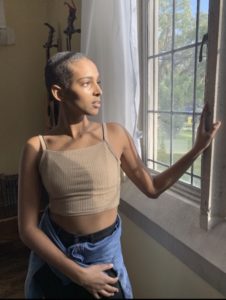
Everywhere I looked, I saw beautiful black women who mirrored my sister: a full-blooded Ethiopian queen in all her 4’10” glory. But I was searching for a sense of belonging that transcends resemblance. Still, I realized how fortunate I was to be an American raised in a middle-class white family. I remembered a comment my mom made over peppermint ice cream after a nightly family dinner –“If I gave birth to three white girls and adopted two black boys, I would never let them leave the house.”
At that moment, I realized I carried unclaimed privilege. As a person of color in a white family, I have slowly become aware of the racial wealth-gap and violence-related disparities between the black and white communities. I felt an urge to conform to what the media portrayed as black. I never had the body praised by Sir Mix-a-Lot. I spoke in what my classmates jeered was a ‘white way’; which is to say we associate uneducated speech with blackness. I always felt unsafe when our car got pulled over. Although I weigh 115 pounds, videos of young black women being brutalized left me terrified. Fortunately, most of the people in my hometown knew my parents or my siblings and associated me with the media-determined qualities of a white family: kind, gentle, and deserving. I was white in the good times and black in the bad, but I was never the right color.
I’m currently working to unlearn the toxic premonitions I’ve absorbed, but it takes a lot of pondering.
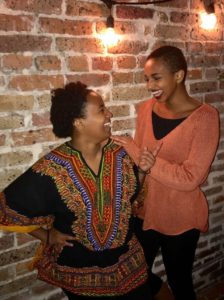
I think blackness is much more than melanin; it’s a shared struggle. For others before me, it was a fight for freedom and voices to be heard. Now, black Americans crave freedom from oppression that is the aftershock of Jim Crow laws. Fifteen years from now, blackness will encompass pride in our ancestors, joy in the triumph of new generations, and hope for the future to continue our progress.
But I want other people’s perception of me to transcend labels. I want to be loved and to love deeply. I want to recognize a need for change and fight for people I don’t even know. I want to be Beza. Unfortunately, accepting yourself isn’t that simple. I still feel the distance from the black population here at my home university of FSU. I’ve traveled across the world to the place I was born and still felt out of place. I don’t strongly identify with black culture in America. I don’t strongly identify with Ethiopian culture either. I am still deliberating, and that is okay.

